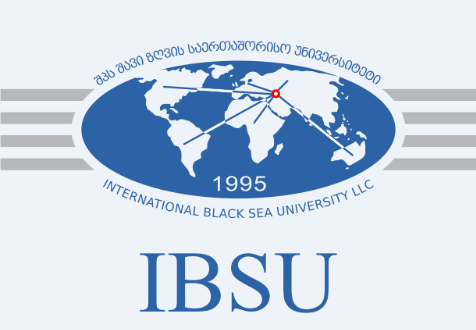The National Center for Education Quality Enhancement (NCEQE), an agency of the Georgian Ministry of Education, stripped the Tbilisi-based International Black Sea University (IBSU) of the right to accept first-year students for the 2018-2019 year.
The NCEQE decision to ban the university from taking in new students less than a month before the start of the academic year, triggered protest among the incoming students, as well as the university administration and civil society organizations.
The move was also regarded as a continuation of the Georgian government’s crackdown on Gülen-affiliated schools. IBSU, which was founded in 1995 pursuant to the agreement of Turkish and Georgian governments, has been operated by the Chaglar Educational Institutions, a Gülen-affiliated network in Georgia.
The NCEQE decision
At its sitting on August 20, the NCEQE authorization council, which studies the conformity of educational institutions with standards set by the Georgian legislation, granted the university a six-year “authorization,” a certificate required for any institution to carry out high educational activities in Georgia, but imposed a year-long enrollment ban, citing “financial problems facing the university.”
“The university has financial debts to the state (as well as frozen movable and immovable property), which was levied upon it for avoiding taxes, and in order to protect the interests of students and avoid risks related to the educational process, the university was stripped of the right to take in new students” the statement reads.
The NCEQE also clarified that the decision would not affect upper level students and would only apply to those who have passed the unified national examination and have indicated IBSU as their first university choice (approximately 800 persons, as reported by IBSU representatives).
Tamar Sanikidze, the NCEQE director, stressed the decision “is absolutely right,” considering that the university owes GEL 715,000 (USD 288,000) to the state and that the property, including the campus buildings, are under the Revenue Service freeze.
“The authorization council discussed at length on current and incoming students, as well as on the university and its reputation, and I think it made a very optimal decision, pursuant to which, the university will retain the authorization, current students will continue their studies and the university administration will have a year to sort out their financial problems,” Sanikidze added.
IBSU response
The university representatives slammed the NCEQE decision, describing it as unlawful and unjustified.
In a statement on August 22, IBSU said: “the irresponsible decision made by the Authorization Council hampers the development of one of the most high-ranking and well-known Georgian universities.”
IBSU lawyer Soso Baratashvili slammed the council decision as “unfair,” saying the University and the Revenue Service have a court dispute over the debt. He also stressed the university was able to pay the sum already, but they were waiting for the court ruling.
Baratashvili also noted that the council decision could be related to “business interests.” He said the owners were carrying out negotiations with British investors to sell the university, but the government officials were hampering this process. “They were against these negotiations because they wanted Georgian businessmen to seize the university almost free of charge,” he said.
Baratashvili said the university might lodge a complaint with the European Court of Human Rights (ECHR).
CSO, student reactions
In a statement released on August 23, a group of local civil society organizations condemned the NCEQE decision. “We call on the authorization council to observe human rights standards and impartiality in the IBSU authorization process. In addition, it is essential that the council revises its own decision and takes every measure to ensure student enrollment this year,” reads the statement of eight leading CSOs.
A group of current and incoming IBSU students held two rallies outside the Ministry of Education on August 21 and August 23, calling on the authorities to revoke the decision. Education Minister Mikheil Batiashvili met them after the first rally and promised to transfer them to various universities through a simplified mobility process.
IBSU has about 2000 international and local students and 400 staff members, and has a 23-year experience in educational activities.
This post is also available in: ქართული (Georgian) Русский (Russian)

